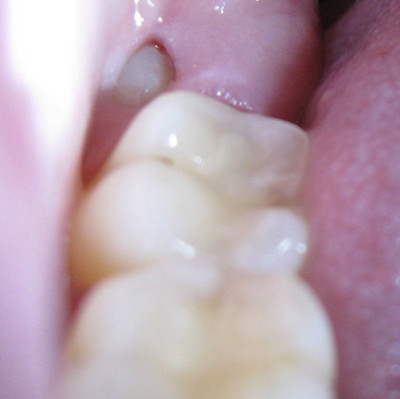Impacted Wisdom Tooth: An Overview
A wisdom tooth is one of the last set of teeth that grows in humans, which typically sprouts between ages 17 and 21. This is a normal biological cycle but there are certain instances wherein the wisdom teeth experiences difficulty in growing normally and it gets stuck under the gums. Some would even find it difficult to break through it. This results to what is now known as impacted wisdom teeth.
Factors resulting to an Impacted Wisdom Tooth
Some of the factors which results to an impacted wisdom tooth is the inability of the jaw to provide enough space for the growth of these last set of teeth. Because of this, the tooth forces its way out at the wrong angle.
Statistics
The rate of individuals who suffer from impacted wisdom tooth is relatively high. It is not to be considered a dental worry but some would wish to eliminate this because it becomes a hiding place for plaque, food, and other debris which may eventually result to tooth decay.
 Picture : Impacted Wisdom Tooth Image
Picture : Impacted Wisdom Tooth Image
Types of Wisdom Tooth Impaction
Dental experts have three classifications for the position of impacted wisdom tooth: mesial impaction, distal impaction, vertical impaction and horizontal impaction.
- Mesial impaction, also known as angular impaction, is the positioning of the wisdom tooth toward an angled forward directed towards the front of the mouth.
- Distal impaction refers to the positioning of the wisdom tooth towards the throat.
- The vertical impaction is the positioning of the wisdom tooth towards the head.
- The horizontal impaction is the positioning of the wisdom tooth sideways.
Degree of Wisdom Tooth Impaction
Aside from classifying impacted wisdom tooth based on the direction of impaction, dentists further classify them depending on the degree of impaction. Soft tissue impaction refers to the impacted wisdom tooth which is slightly covered with a gum. Partial-bony impaction is the impacted wisdom tooth which is covered by the gum and a few portion of the jaw bone. The complete bony impaction is the impacted wisdom tooth which is covered under the gum including all the jaw bone.
Impacted Wisdom Tooth Infections and Complications
You are lucky if you will not have any impacted wisdom tooth. But for those who suffer from it are prone to inflammation, facial abscess, numbness, cyst, and occlusal malalignment. Below is a brief explanation of these complications:
Cyst
It is pretty much possible that impacted wisdom tooth infection will cause cyst because of the sac which holds has the capacity to be filled with fluid. When this happens, you are to experience more pain because it may result to the damage of your entire jaw bone affecting a wide area of your teeth and nerves.
Damage to nearby teeth
Impacted wisdom tooth may force its way to erupt which may damage the second molar. Once it is pushed, the second molar becomes more vulnerable to infection. Moreover, individuals may experience misaligned teeth because of the growth of the impacted wisdom tooth.
Tooth Decay
Since impacted wisdom tooth is hard to clean, it is more prone to tooth decay. The trapped food it receives may develop plaque which will result to the faster growth of bacteria in the mouth.
Gum Disease
One of the possible problems that you may experience with impacted wisdom tooth is gum diseases. This is closely tied with the difficulty of cleaning this impacted wisdom tooth, especially that of the partially erupted wisdom teeth, which results to more inflammatory gum problems like pericoronitis.
In some instances, it may even travel downwards to your body system resulting to an airway obstruction which eventually leads to a sudden death. Thus, it is absolutely important to get rid of the problem during your younger years because impacted wisdom tooth extracted during the elder years becomes all the more problematic.
Causes of Impacted Wisdom Tooth Pain
Many attribute the cause of impacted wisdom tooth pain to stress like the nearing of final exam, pregnancy and relocation. When this happens, it is a sign that you have to seek the dentist’s assistance because the next pain that you will experience may not be as simple as it is in the past.
The pain experienced because of impacted wisdom tooth is extra-ordinary. The pain is not limited to the gums but extends to the eyes and to the head. You will experience swelling around the jaw and tender bleeding in your gums. This will make it completely impossible to eat which will result to many inconveniences. If you feel any of these, then it is high time to rush to the emergency room of your dentist and seek impacted wisdom tooth extraction.
Evaluative Measures before the Impacted Wisdom Tooth Treatment
An ordinary dentist may not be able to handle the extraction on his own. You may be requested to see an oral surgeon for further evaluation of your mouth condition. This is necessary so unwanted complications may be prevented in the future. For one, they will require you to undergo dental x-rays so they can reveal the presence of the impacted teeth and think of the best solution for it to be removed. You may also be requested to submit a medical history and a thorough examination of your gums and teeth for the operation to be successful.
Treatment
The only way for you to be free from the inconvenience brought about by impacted wisdom tooth is extraction. During this extraction, the dentist or your oral surgeon will make an incision on the gums so it can easily extract the bone that blocks the impacted tooth. Due to the complexity of these, you will be given local anesthesia to numb your mouth area; otherwise the pain will be unbearable. Once the extraction is completed, it will be stitched back and you will be given the necessary medication which must be strictly followed.
Post Extraction Problems Related to Impacted Wisdom Tooth
Expect bleeding to last until three days, which means you will be restricted to eat certain types of foods for a short period of time. You will also be limited to brush your teeth because the slightest touch on this area will cause bleeding. Gauze pads will be placed on the extraction site and should be firmly bitten down to hasten the healing process.
Swelling may also be experienced by the patient in a day or two but this is not suppose to cause you any alarm. Consider it a good sign because it implies that the healing process is normally progressing. But if the swelling occurs after a few weeks, then it is a signal that you have to go ahead and visit your dentist once again.
Never allow an inexperienced dentist to handle your wisdom tooth extraction because it is more sensitive that the common extraction that they perform. It requires more skills and knowledge. Avoid having to suffer unwanted nerve injury and complications which will produce more damage to your health and follow their prescribed post medications.
Impacted Wisdom Tooth Extraction Controversy
Due to the complexity and the complications that may arise because of impacted wisdom tooth extraction, there are certain dentists who do not recommend its extraction. In any case, the decision to proceed with the treatment rests in the hands of the patient.
Reference
http://www.cc.nih.gov/ccc/patient_education/pepubs/thirdmolar.pdf
http://clinicalevidence.bmj.com/ceweb/conditions/orh/1302/1302-get.pdf

